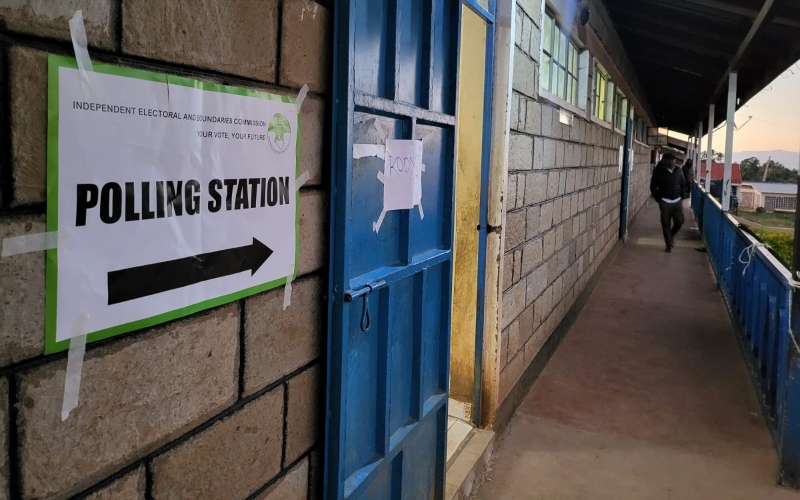Diabetes crisis: Why eating after 5pm could harm glucose metabolism

Participants who consumed a significant portion of their calories after 5 pm had higher blood glucose levels during oral glucose tolerance tests, indicating poorer glucose regulation.
A recent study reveals that consuming large meals after 5 pm may worsen glucose tolerance, potentially increasing the risk of type 2 diabetes.
Unlike earlier research that linked late eating to obesity, this study highlights its direct impact on blood sugar regulation, independent of factors such as body weight, fat mass, energy intake, or diet composition, particularly in individuals with prediabetes or the early onset of type 2 diabetes.
More To Read
- How follow-up programmes bridge treatment gap in non-communicable diseases
- Study shows women under 50 face higher risk of colon growths from ultra-processed foods
- Why gestational diabetes is no longer a temporary pregnancy problem
- WHO issues first global guidelines on diabetes in pregnancy
- Once a disease of the elderly, colon cancer is now hitting people in their 30s and 40s
- Convenient but dangerous: The hidden health risks of ultra-processed foods
The study highlights the crucial role of meal timing in managing metabolic health, conducted by researchers from Universitat Oberta de Catalunya in Barcelona and Columbia University in New York. It shows that consuming more than 45 per cent of daily calories after 5 pm can impair glucose metabolism, irrespective of body weight, fat mass, or total caloric intake.
Dr Marta Garaulet, one of the study’s lead researchers, explains, “Our findings suggest that late eating has a direct impact on glucose metabolism that is independent of other factors like body weight or the amount of calories consumed. This shows the importance of not only what we eat but also when we eat.”
Key findings
Impaired Glucose Tolerance in Late Eaters: Participants who consumed a significant portion of their calories after 5 pm had higher blood glucose levels during oral glucose tolerance tests, indicating poorer glucose regulation.
Independent of Weight and Diet Composition: Unlike previous studies that linked late eating to obesity, this research shows that glucose tolerance declines even when calorie intake and macronutrient composition are similar across groups.
Disruption of Circadian Rhythms: Late-night meals are associated with circadian misalignment, which can exacerbate glucose intolerance and metabolic dysfunction.
Dietary Patterns Matter: Late eaters consumed more fats, carbohydrates, and sugar in the evening, contributing to poorer overnight glucose metabolism.
Dr Marisa Norton, co-author of the study, emphasises, “Our research adds to the growing body of evidence that meal timing plays a critical role in health. Even individuals who maintain a healthy weight may face metabolic challenges if they consume most of their calories later in the day.”
The research analysed 26 participants aged 50 to 75 years who were either overweight or obese and had prediabetes or early T2D. Divided into two groups, “early eaters” consumed the majority of their daily calories before 5 pm, while “late eaters” consumed at least 45 per cent of their calories after that time.
Both groups consumed comparable daily calories and macronutrients, but late eaters consumed nearly twice as many calories in the evening, with a higher intake of fats and carbohydrates.
Despite similar caloric intake, late eaters demonstrated significantly poorer glucose tolerance, with elevated blood sugar levels persisting long after meals.
Broader implications
This study challenges traditional assumptions about diet, which have often focused on calorie counts and macronutrient ratios. It builds on earlier findings that meal timing can influence metabolic outcomes, including body weight and glucose regulation. However, this research is among the first to show that late eating impairs glucose tolerance independently of these factors.
Past intervention studies have found similar results. For example, participants consuming most of their calories in the morning experienced improved glucose metabolism, lower HbA1c levels, and enhanced insulin response. Conversely, observational data indicate that late-night eating increases the long-term risk of developing T2D.
Dr Garaulet recommends a shift in eating habits to prioritise earlier meals.
“For those at risk of diabetes, it’s not just about what you eat but also about when you eat. Consuming calories earlier in the day can significantly improve glucose regulation and reduce long-term health risks.”
Healthcare professionals are now paying closer attention to meal timing in diabetes prevention and management strategies. By encouraging patients to focus their caloric intake in the morning and early afternoon, they aim to mitigate the progression of T2D and lower the risks of cardiovascular disease and chronic inflammation.
This study highlights an important yet often overlooked aspect of nutrition science: timing matters. As research continues to unfold, meal timing may become a key pillar of dietary recommendations for metabolic health. By shifting our eating patterns, we can improve glucose regulation and enhance overall well-being.
Diabetes, a significant non-communicable disease (NCD), is an escalating public health concern in Kenya. The prevalence is estimated at approximately 4.5 per cent, with higher rates observed in men compared to women, and prevalence increasing with age.
Globally, the number of people living with diabetes surged from 200 million in 1990 to 830 million in 2022, with low- and middle-income countries experiencing faster growth compared to high-income nations.
In 2021, diabetes directly caused 1.6 million deaths, with nearly half occurring before the age of 70. An additional 530,000 deaths were attributed to kidney disease caused by diabetes, while high blood glucose contributed to approximately 11 per cent of cardiovascular fatalities. Diabetes also leads to severe complications such as blindness, kidney failure, heart attacks, stroke, and lower-limb amputations.
In Kenya, diabetes imposes a substantial economic burden at individual, household, community, and national levels. A 2022 cost-of-illness study estimated the total annual cost of diabetes at Sh 24.6 billion ($230 million).
Of this, direct medical expenses accounted for 60 per cent, while indirect costs, such as lost productivity, made up the remaining 40 per cent. The financial strain is particularly pronounced in urban areas compared to rural ones.
Preventing or delaying type 2 diabetes involves lifestyle changes, including a healthy diet, regular physical activity, maintaining a healthy weight, and avoiding tobacco use.
For those living with the condition, managing diabetes effectively with diet, exercise, medication, and regular screening can help prevent or delay complications, reducing its impact on overall health and quality of life.
Top Stories Today















































